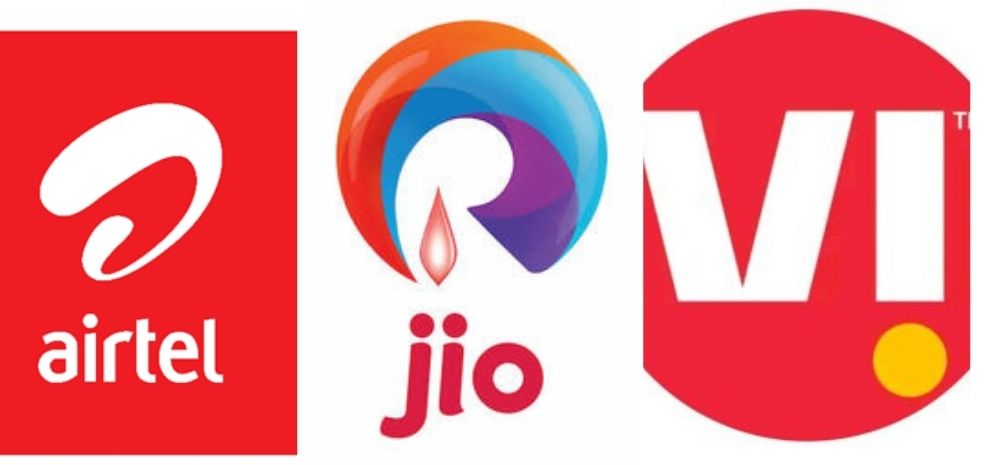3 Reasons Why Airtel, Jio, Vi Can Increase Data, Voice Charges Anytime Now

3 Reasons Why Airtel, Jio, Vi Can Increase Data, Voice Charges Anytime Now
The tariff hike in the telecom sector is “on the cards” as the telecom operators in India are “required to make sizeable payouts” to the government, said ICRA, a credit rating agency on Thursday.
Why does ICRA think so? Let us find out…
Contents
Reasons Why Telecom Tariffs Might Rise!
1. Mounting Debt
The telecom operators have to pay the adjusted gross revenue (AGR) dues, auction installments, and regular revenue share to the Centre.
In September, the Supreme Court allowed the telcos to pay their balance AGR dues over the next 10 years instead of the old 20-year schedule suggested by the Department of Telecommunications (DoT). The SC expects an upfront payment of 10% of the dues is expected by March 31, 2021.
Vodafone Idea (VI) owes Rs 54,754 crore whereas Bharti Airtel has a debt of 25,976 crores in AGR dues.
As of March 31, 2020, the industry debt declined to Rs 4.4 lakh crore as on March 31, 2020. However, the firm pointed out that the SC’s decision on AGR dues “added to the woes” of the telecom operators.
It was “unclear whether the next round of tariff hikes” would be initiated by all operators or “limited” to the operators with AGR dues, said ICRA in a release.
Ankit Jain, assistant vice president of ICRA, said that the operators will have to resort to other approaches as well to reduce their debt such as “monetization of assets like fiber, data centers.”
2. Need for Higher ARPU
According to ICRA, from the perspective of the telecom operators, a “sustainable and sizeable” average revenue per user (ARPU) expansion is “critical” for them to meet their payout obligations.
The postpaid segment provides “higher ARPU” and greater user “stickiness” to the telecom operators, said the firm.
In September, Jio forayed into the postpaid segment with it Jio Postpaid Plus plans. Recently, in October, after Jio launched the entry-tier postpaid plan at Rs 399, Bharti Airtel made its entry-tier postpaid plan priced at Rs 399 available in more circles across India,
ICRA said, “It remains to be seen how this will impact competition as typically India is primarily a prepaid market while internationally, many countries are dominated by postpaid connection.”
3. Previous Tariff Hike Brought in Good Results
Anupama Arora, vice president and sector head of Corporate Ratings at ICRA, said in the release, “While the industry still grapples with elevated debt levels and weak debt coverage metrics, the last fiscal has witnessed some respite in terms of steady ARPU improvement driven mainly by the tariff hikes implemented in December 2019, the deleveraging measures undertaken by the telcos, and moderation of capex intensity.”
Arora said, “RJIL has upped the ante in this segment, which can impact the ARPUs and profitability of the incumbents.”
She added, “Notwithstanding the competitive intensity, the telcos have been able to improve the ARPUs given the tariff hikes implemented in the past and consistent upgrades of 2G subscribers to 4G.”
Arora pointed out that the tariff hikes in December improved the industry revenues in the Q1 of the current financial year.
“ICRA expects this trend to continue as the telcos will dial the tariff hikes again and the ARPUs are expected to reach Rs.220 in the medium-term,” Arora said.

Comments are closed, but trackbacks and pingbacks are open.